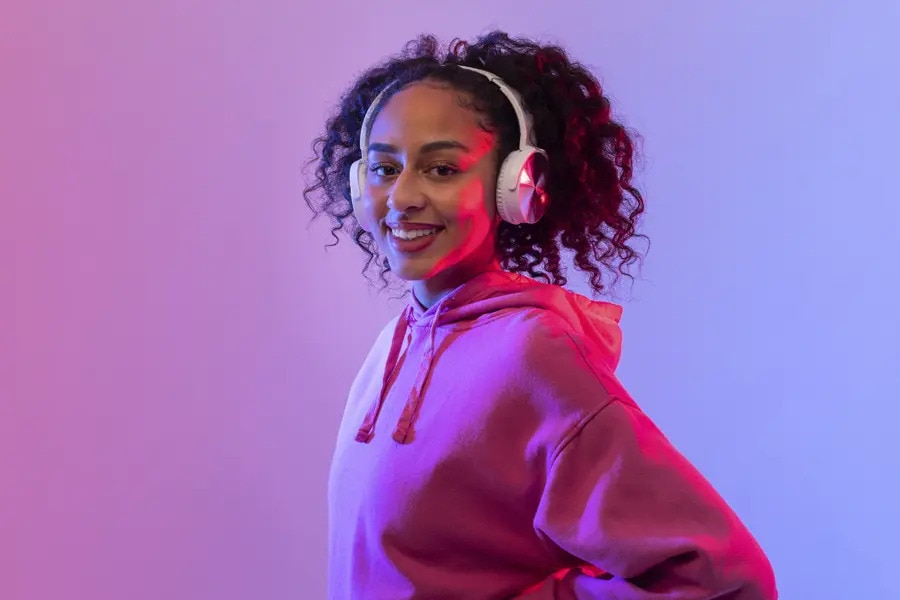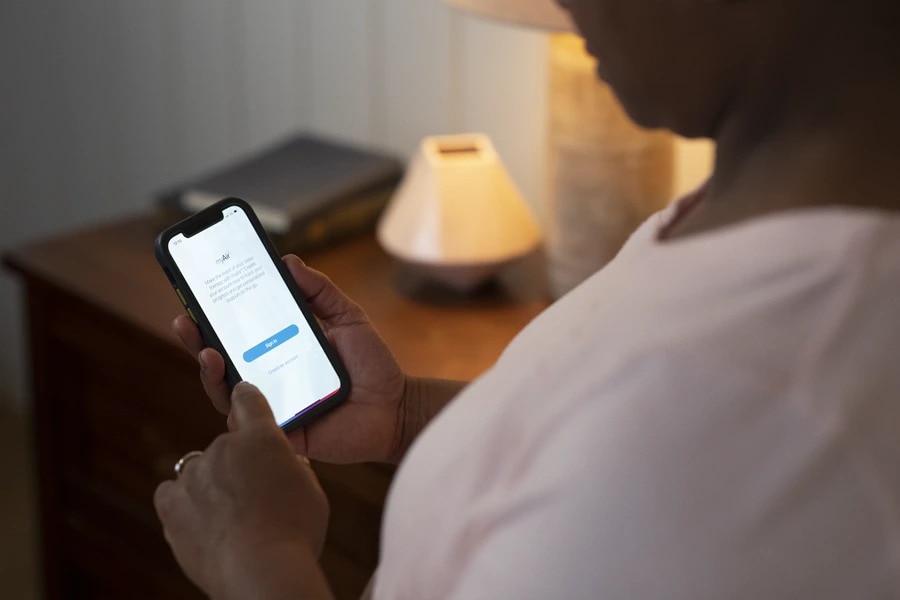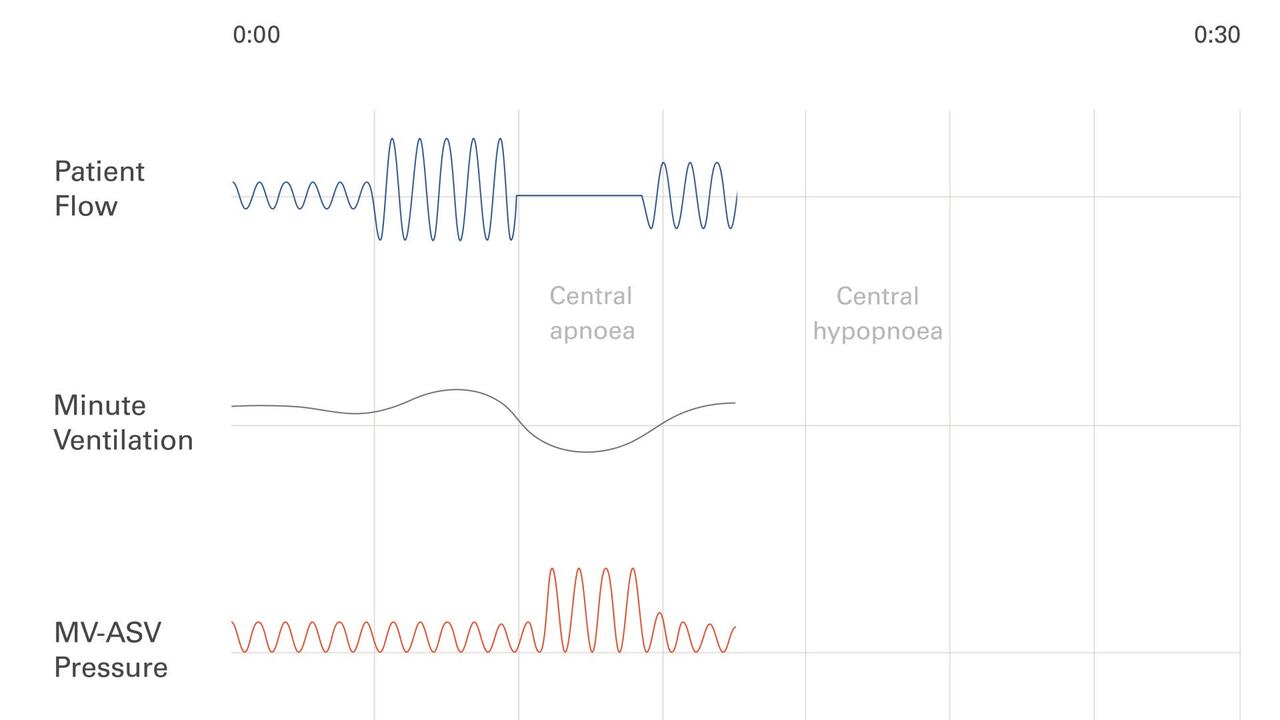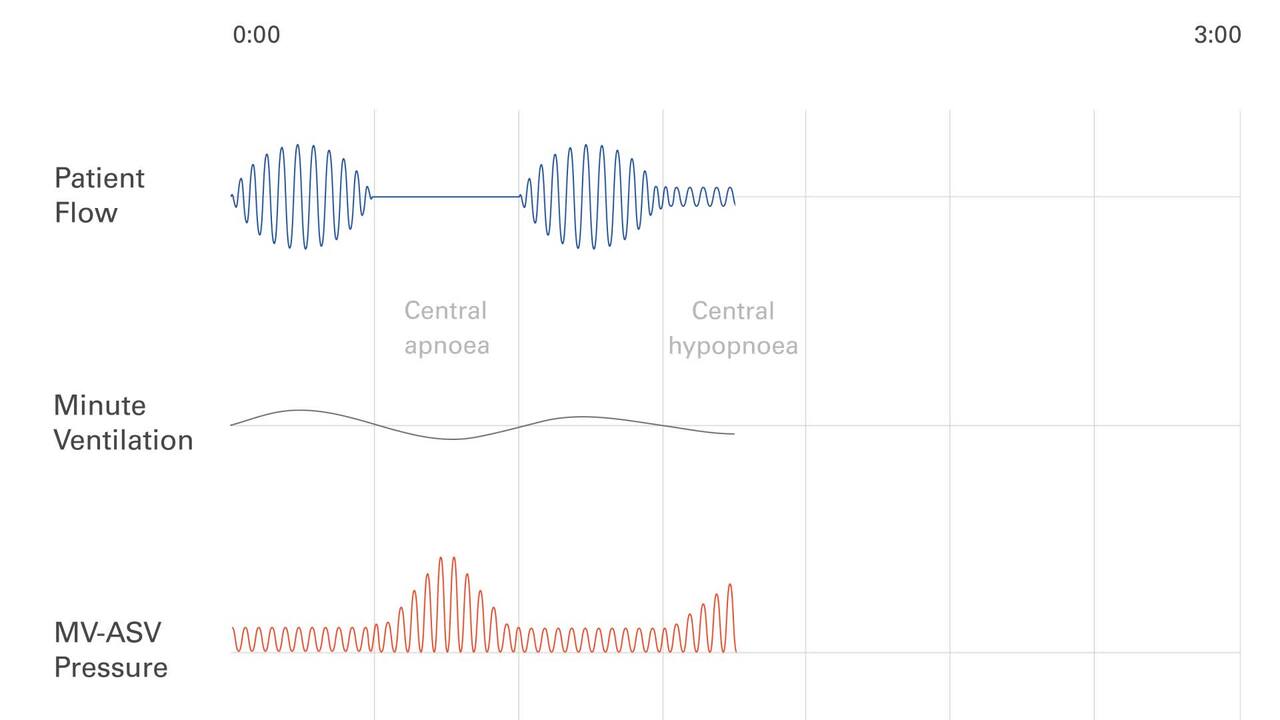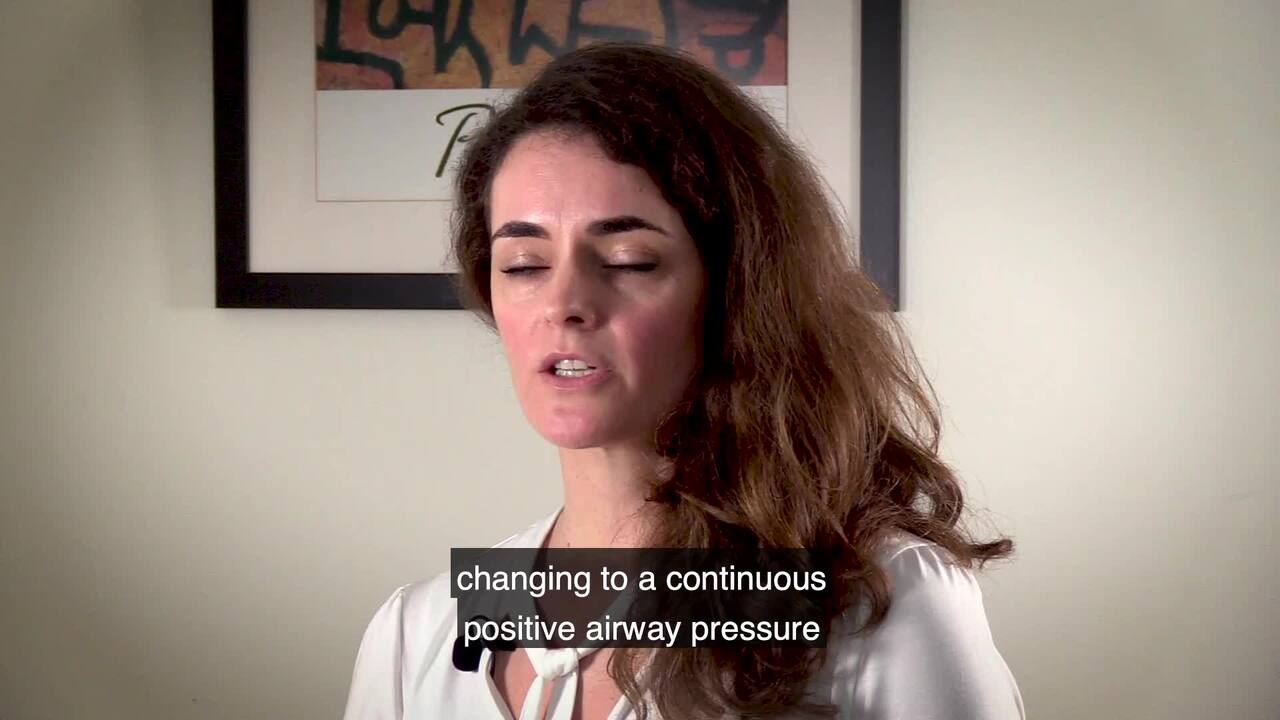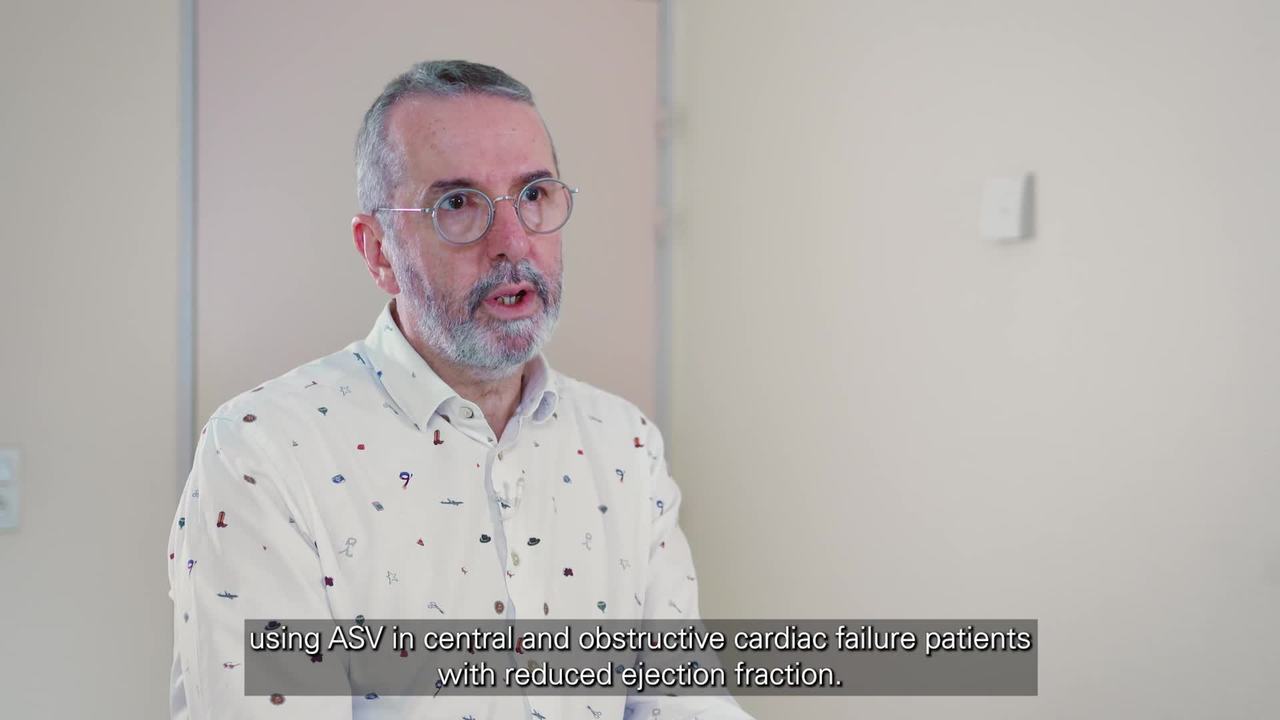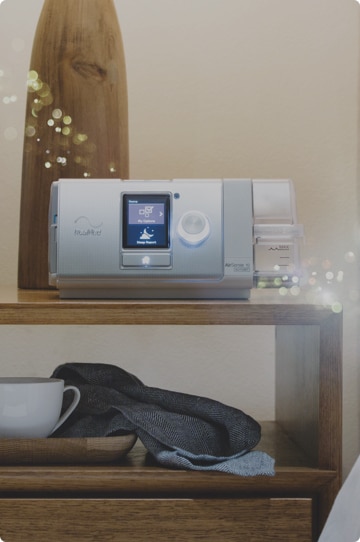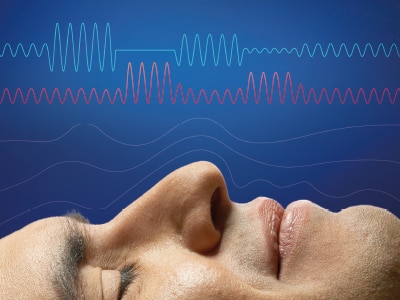How to treat your patients with central sleep apnoea?
Discover how Resmed Adaptive Servo-Ventilation (ASV)* solution promotes harmony, safety and comfort.
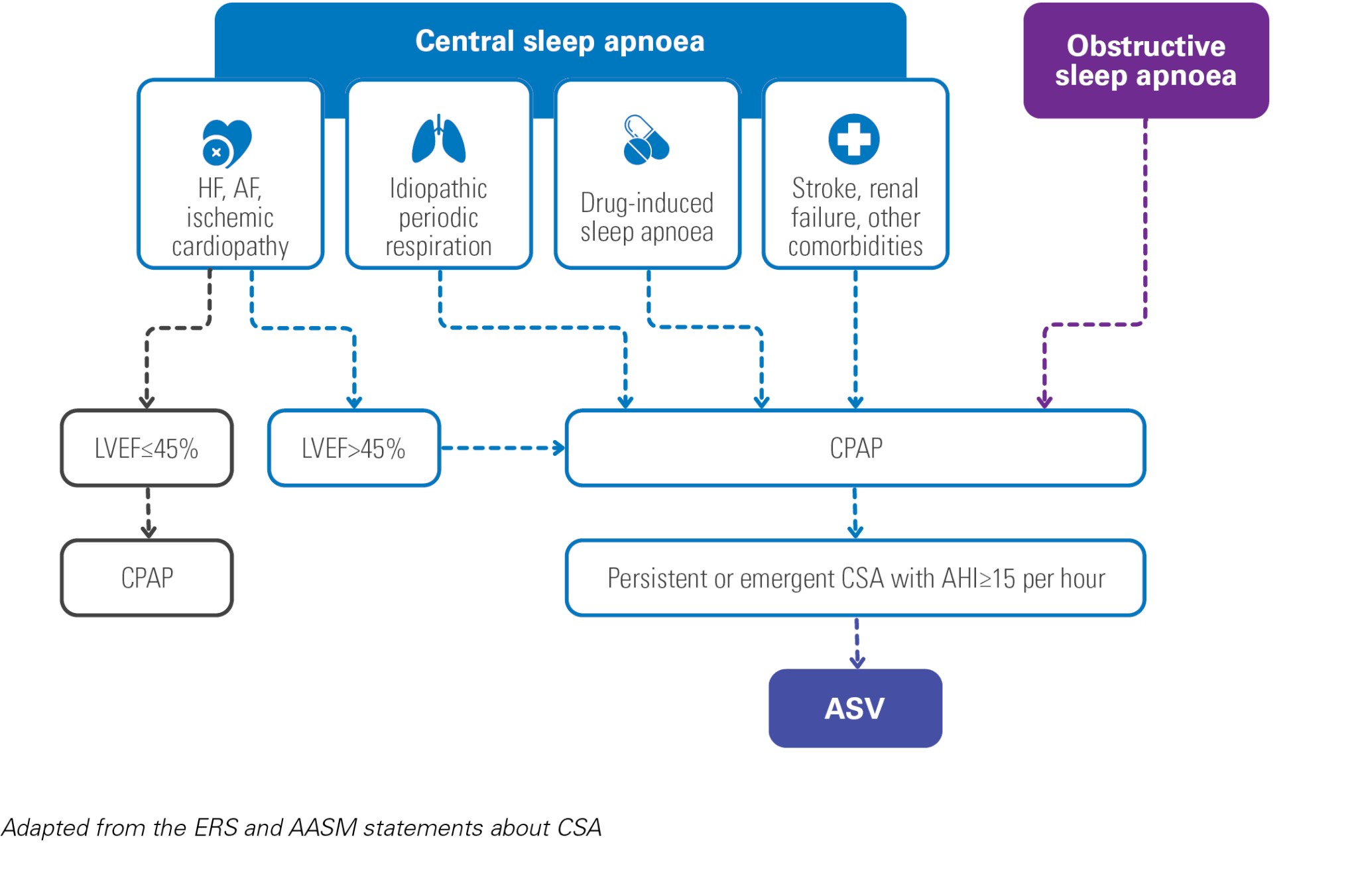
When can ASV therapy be prescribed?
The ERS statement about the treatment of central breathing disturbances during sleep7
References:
* ASV therapy is contraindicated in patients with chronic, symptomatic heart failure (NYHA 2-4) with reduced left ventricular ejection fraction (LVEF ≤ 45%) and moderate to severe predominant central sleep apnoea.
- Pépin JL et al. Adherence to positive airway therapy after switching from CPAP to ASV: a big data analysis. J Clin Sleep Med. 2018;14(1):57–63.
- Cistulli PA, Armitstead J, Pepin JL, Woehrle H, Nunez CM, Benjafield A, Malhotra A. Short-term CPAP adherence in obstructive sleep apnoea: a big data analysis using real world data. Sleep Med. 2019 Jan 11. Pi:S1389-9457(18)30797-4.
- Carnevale et al. Effectiveness of Adaptive Servo-Ventilation in the treatment of hypocapnic central sleep apnoea of various etiologies Sleep Medicine 2011 Dec;12(10):952-8.
- Allan et al. Efficacy of adaptive servo ventilation in treatment of complex and central sleep apnoea syndromes Chest 2007;132:1839-46.
- Morgenthaler et al. Adaptive servoventilation versus noninvasive postive pressure ventilation for central, mixed and complex sleep apnoea sydromes. Sleep 2007 ; 30(4) :468-75.
- Brown et al. A retrospective case series of adaptive servoventilation for complex sleep apnoea. J Clin Sleep Med 2011 ;7(2):187-95.
- Randerath W et al. Defintion, discrimination, diagnosis and treatment of central breathing disturbances during sleep ERJ Express. Published on December 5, 2016 as doi: 10.1183/13993003.00959-2016.
